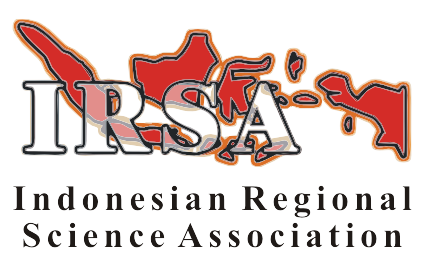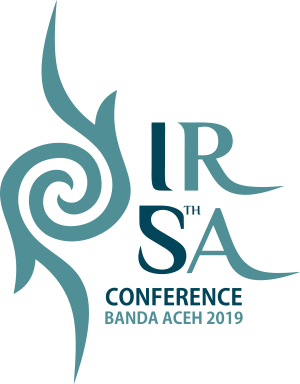The Indonesian Regional Science Association (IRSA) in collaboration with Syiah Kuala University invites scholars, practitioners, and students to submit papers to be presented in the 15th IRSA International Conference. The theme of the conference is Disasters and Regional Development, and it will be held in Banda Aceh, Indonesia, on 22-23 July 2019. Plenary session speakers include Vivi Alatas (World Bank), John Piggott (UNSW) and Suprayoga Hadi (BAPPENAS).
Potential topics to be discussed in the conference include, but not limited to:
- Disaster risk reduction and early warning system
- Disaster risk finance and insurance
- Managing post disaster recovery and sustainability
- Local government innovation and governance
- Economic shocks and social safety nets
- Income inequality and regional disparities
- Infrastructure, basic utilities and regional management
- Public services and human development
- Trade, investment and economic growth
- Decentralization and regional fiscal policies
- Regional macro and financial policies
- Inflation and exchange rate policies
- Islamic finance and Syariah based development
- Culture, land and village development
- Extended paper abstract of up to 1,000 words should be submitted online via http://www.conftool.com by 1 April 2019.
Extended abstract should consist of background, purpose and potential contributions, data and methodology, results, conclusion and keywords. An example of such extended abstract can be seen over here. Abstracts must be submitted in English, as also the full paper.
Paper sessions are seminar-style for each paper and ample time for discussion and for participants to provide constructive feedback to authors. Paper presentations will be in English.
Important Dates
- Jan 1, 2019 : Abstract Submission Opening
- Apr 1, 2019 : Abstract Submission Deadline
- May 1, 2019 : Early Bird Registration Open
- May 1, 2019 : Notification of Abstract Acceptance
- Jun 1, 2019 : Early Bird Registration End
- Jun 22, 2019 : Full Paper Submission Deadline
- Jun 22, 2019 : Paper Presenter Registration Deadline
- Jul 5, 2019 : Non-Presenter Registration Deadline
- Jul 20-21, 2019 : Pre-conference training
- Jul 22-23, 2019 : Conference Date
IRSA 2019 Secretariat
Fakultas Ekonomi dan Bisnis
Universitas Syiah Kuala
Kopelma Darussalam
Jl. T. Nyak Arief, Banda Aceh 23111
Aceh, Indonesia
Phone/Fax:
+62 651 755 1265;
+62 821 2224 5432;
+62 812 6978 135 (WhatsApp only)
Email:
nazamuddin[at]unsyiah.ac.id , or saiful.mahdi[at]unsyiah.ac.id


